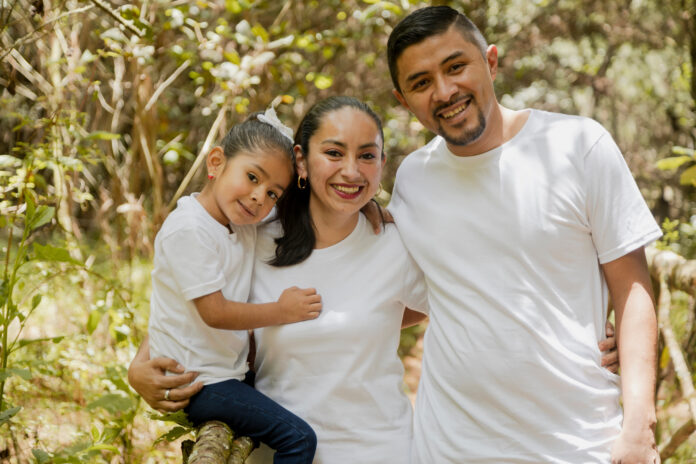
Family class immigrants and refugees with HIV who are dependents no longer need to inform their sponsors of that they have tested positive for the life-long condition.
“Beginning July 7, 2023, automatic partner notifications of applicants in the sponsored family class and dependent refugee class who test positive for HIV will be discontinued,” notes the Immigration, Refugees and Citizenship Canada (IRCC) website.
“In effect, applicants who test positive for HIV in the sponsored family class and dependent refugee class will be subject to the same procedural process as all other applicants who test positive for HIV from other classes.”
HIV attacks the body’s immune system and there is currently no effective cure, although there are treatments.
Under the IRCC policy for those who have tested positive for HIV, all permanent resident applicants who are 15 years of age or older, as well as children who have certain risk factors – such as having received blood or blood products, having a mother living with known HIV or showing failure to thrive – are required to undergo an HIV test as part of the medical examination.
Read More Canada Immigration News
Canada Targets Remote Working Digital Nomads With New Tech Talent Strategy
Immigrate To Canada As Dentist: All You Need To Know
International Students In Canada: How To Change Schools
“As part of this medical examination, the responsible panel physician will provide post-test counselling to applicants who test positive,” notes the IRCC.
“The panel physician will have the applicant sign the Acknowledgement of HIV post-test counselling form.”
While a positive HIV test does not in and of itself make an applicant inadmissible for immigration due to public health concerns, it may lead to them being inadmissible if their healthcare costs would exceed the excessive demand threshold.
Under family sponsorship programs, a Canadian citizen or a permanent resident of Canada, aged 18 or more can sponsor certain family members to become Canadian permanent residents.
With that permanent residence, those family members are able to live, study and work in Canada.
The sponsor assumes all financial responsibility for their relative once he or she arrives in Canada.
Sponsors Must Agree To Provide Financial Support To Their Relatives
To be a sponsor, the Canadian citizen or permanent resident must:
- sign a sponsorship agreement with the relative to be sponsored that commits the sponsor to provide financial support for the relative, if necessary. This agreement also says the person becoming a permanent resident will make every effort to support him or herself;
- provide financial support for a spouse, common-law or conjugal partner for three years from the date they become a permanent resident, and;
- provide financial support for a dependent child for 10 years, or until the child turns 25, whichever comes first.
Relatives who can be sponsored include:
- spouse – (restrictions apply)
- common-law partner – (restrictions apply)
- conjugal partner – (restrictions apply)
- dependent children
- parents – (Additional conditions apply)
- grandparents – (Additional conditions apply)
- brothers or sisters, nephews or nieces, granddaughters or grandsons who are orphaned, under 18 years of age and not married or in a common-law relationship
- another relative of any age or relationship but only under specific conditions
- accompanying relatives of the above (for example, spouse, partner and dependent children).
Spouses and common-law partners who come to Canada under the sponsorship programs are allowed to work under the Spousal Work Permit Pilot Program.
The program is designed to allow spouses and partners to work while their immigration applications are being finalized.
Eligible candidates must be in Canada and in the process of being sponsored for permanent residence under the spouse or common-law partner class. Candidates must also have valid temporary status as a visitor, student or worker.
Sponsorship Agreement Stays In Place Even In Cases Of Divorce
Under the sponsorship programs, sponsors ink a contract with Canada’s immigration authorities to repay the government for any social assistance payments made to the sponsored person. Sponsors remain obligated to the undertaking agreement for the entire period of the contract, even in a change of circumstances such as marital breakdown, separation, divorce, or a financial change in circumstances.
In the case of a spouse, common-law partner or conjugal partner, a sponsor is required to sign an undertaking to reimburse the federal or provincial governments from the date in which they become a permanent resident for the period of three years.
Video
In the case of a child under the age of 19 years, of the sponsor or the spouse, common-law partner, or conjugal partner, the obligation starts on the day that the child becomes a permanent resident of Canada for a period of 10 years or until the child reaches the age of 25 years.
In the case of a dependent child over the age of 19 years, the obligation starts on the day that the dependent child becomes a permanent resident, for a period of three years.
In the case of parents and grandparents, the sponsorship obligation extends for a period of 20 years from the date in which the member of the family class becomes a permanent resident. For all other family members, the obligation is of a duration of 10 years.

